B2C SaaS SEO for CampusReel
CampusReel helps highschool students evaluate the universities and colleges they’re interested in attending with actual interviews, reviews, and virtual tours from real students.
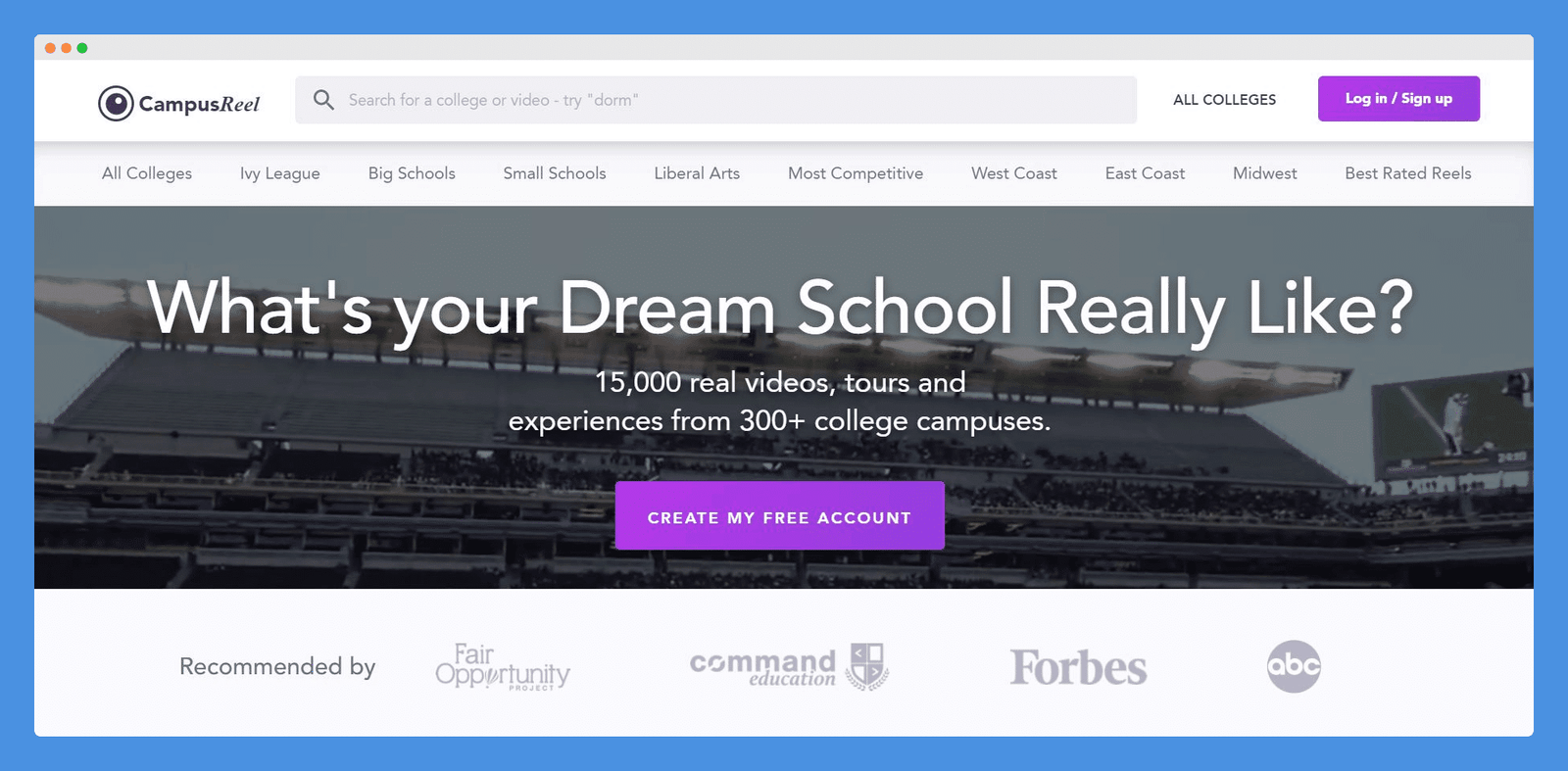
On the date, we signed the contract, February 2nd, 2019, CampusReel.org had estimated organic traffic of 1,033 visitors per month.
Just 12 months later CampusReel’s estimated organic traffic has exploded to 166,971 estimated organic search visitors per month:

From 36,159 page 1 keywords:

The screenshot above shows keyword growth for only keywords ranking in positions 1 – 10, or the first page of Google.
🔎 Background
If this is your first piece of ContentDistribution.com content, here’s what you gotta know.
We’ve taken 5 projects from 0 to 100,000+ organics/month without building backlinks.
Without technical BS.
Without shortcuts.
And without hacks.
We did it by creating the highest quality, most relevant page of content Google could show for the keywords we wanted to rank for and doing that over and over again.
Basically, good content at scale.
And we’ve documented exactly how we do it:
-
- 0 to 103,000 organics/month (first big win)
- 0 to 119,000 organics/month (subscription DTC)
- 0 to 166,000 organics/month (second big win)
- 0 to 1,500,000 organics/month (biggest win for A16Z startup)
- Baby fat graphs (not quite big enough for their own case study)
Estimated Organic Search Traffic
If you’re familiar with Ahrefs, the #1 SEO tool in the world, you can skip this next section.
But if you aren’t sure what you’re looking at, keep reading.
Ahrefs provides SEOs with data to make intelligent campaign decisions.
One of the core pieces of functionality Ahrefs provides SEOs with is estimated organic search traffic of any website on the internet.

Read the full article here.
Ahrefs estimated organic search traffic isn’t going to exactly match Google Analytics traffic, but the reason I’m showing you Ahref’s estimate organic traffic instead of Google Analytics is:
- Ahrefs data is public and can be viewed by anyone with an Ahrefs account
- Google Analytics data is private & generally our clients don’t want this data made publicly available (although some don’t mind)
- Ahrefs data is more accurate than SimilarWeb, Moz, SEMRush, and any other tool that exists to estimate organic search traffic
Here is what Ahrefs has to say about the difference between their data & Google analytics:
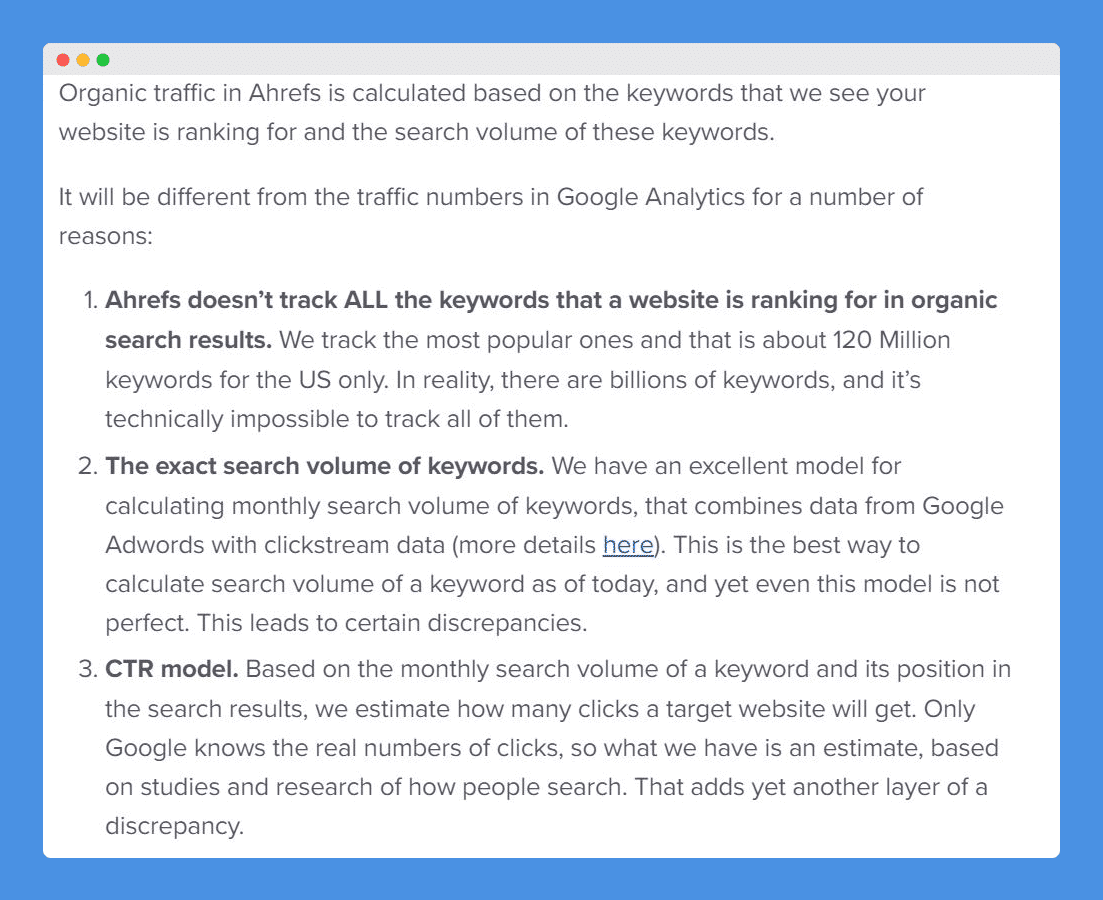
Read the full article here.
The opportunity
When CampusReel approached us, they thought organic search traffic could be a major growth lever, but they didn’t have a clear path forward.
When you Google ‘ranking factors’, you find Backlinko’s article with over 200 different ranking factors.
And as a small bootstrapped startup, CampusReel didn’t have the bandwidth to learn, test, and iterate, or the internal expertise on their team to delegate.
Everything you know about Google is a lie. Learn how Google really works (based on 65,000 1st page keywords).
And their thinking was correct.
Their competitors are generating huge amounts of traffic.
Niche.com

UsNews.com

PrincetonReview.com

CampusReel’s competitors are generating these enormous amounts of traffic by ranking for the brand names of the schools they have data on.
Model the impact of organic content distribution with our SEO ROI calculator
When you Google any school in the country’s name, one of these competitors almost always show up:
Niche.com

UsNews.com

GreatSchools.org
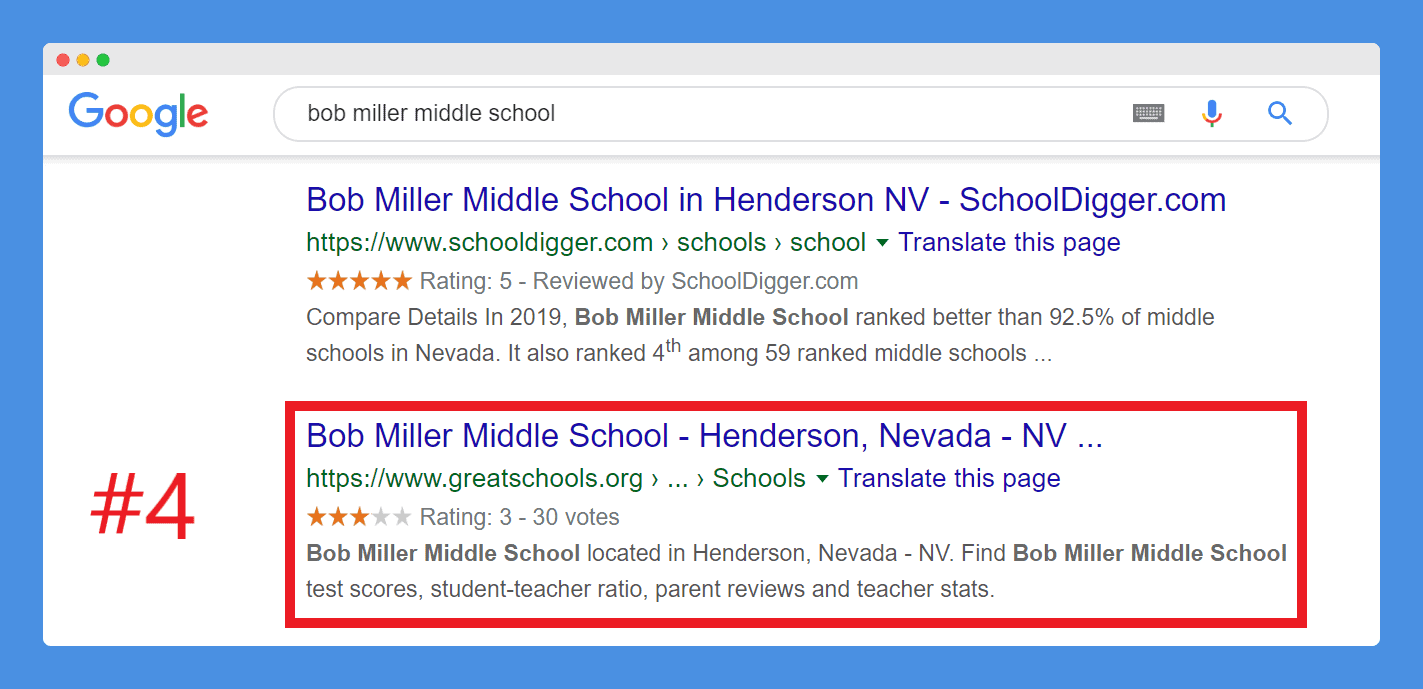
The challenge
CampusReel’s approach is different than each of its competitors.
Their competitors didn’t create tens of thousands of pages manually by hand, their competitors have programmatically created pages about every school in the country with information they scraped about the school from the Department of Education.
CampusReel didn’t do that.
Their angle on education reviews is real interviews, reviews and walkthroughs from real students by paying students attending these schools to create user-generated content (UGC).
And because CampusReel is a small bootstrapped startup, they only had content from hundreds of schools, not tens of thousands like their competitors.
The next challenge was CampusReel’s content is in the form of video. Their pages had almost zero written content.
Outside of a few websites like YouTube and Pinterest, Google prefers to rank websites that are rich in written content.
And our strategy had to reflect the fact that CampusReel
- Is a small, bootstrapped startup
- They had nearly zero written content
- The number of schools they had content for is measured in the hundreds, not tens of thousands
Execution strategy
In order to execute the campaign with the budget CampusReel had allocated we had the following limitations:
- We needed to work with the content CampusReel had today, meaning no scraped data from the Department of Education.
- While hiring writers to write high-quality content is less expensive than you would expect, producing the volume of content we needed for hundreds of schools wasn’t an option.
- We had to focus on areas that could be done once, but create an impact on a site-wide basis.
Sitewide Optimizations
The more relevant we are to the keyword we want to rank for, the easier it is to rank.
But Google’s ranking algorithm can’t read minds, and if we want to be relevant to a particular school, we need to be explicit in what we tell Google our page is about.
And the areas we have to drive relevance are limited to:
- URL
- Title
- Meta title
- H1
- H2s
- Internal links
- External links
- Pages linking to you
#1 – #7 are accessible to us, whereas #8 is generally outside of our control unless your organization excels at earned media, or has the budget to pay for backlinks.
URLs
CampusReel built their app in Ruby on Rails, and when we took over the project they were using random strings in their URLs.
Think CampusReel.org/05da0d06-4814-4de4-8d5a-dc47b0534610.html
URLs were changed to:
CampusReel.org/colleges/school-name
For example:

Internal linking
The closer a page is to the homepage, the more important Google believes that page is to your brand, and the easier it is to rank.
But we can’t link 300+ universities from the homepage without wrecking the user experience.
So in order to reduce the # of clicks, it takes to get from the homepage to any school on CampusReel we created ‘hubpages’.
Hubpages are groups of similar pages under one ‘hub’.
This allows us to reduce the # of links on the homepage to a manageable amount, while still reducing the # of clicks it takes to visit any school on the site.
This was implemented in both the header and footer of the site to align with SEO best practices, but also improve the user experience.
We linked to these hub pages in the header:
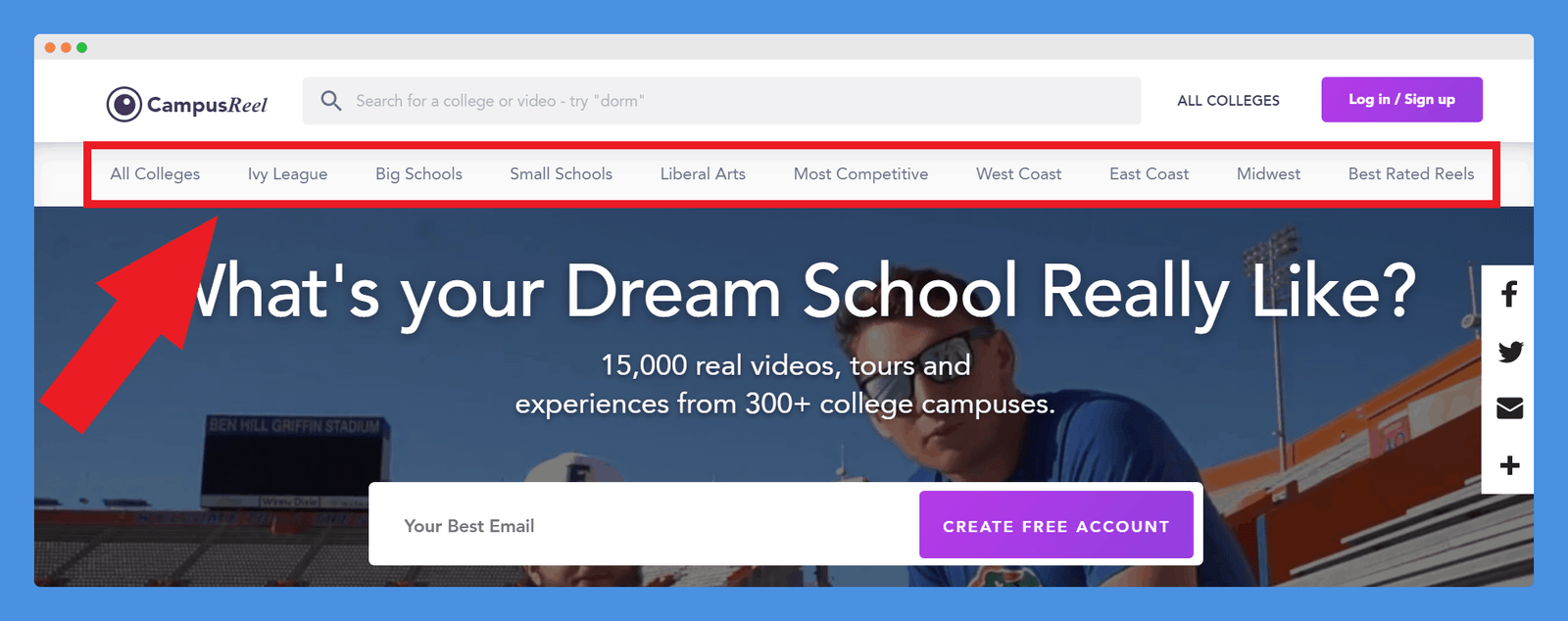
And footer:

Clicking a hub page takes you to a list of all the schools tagged with a particular ‘school type’ attribute:
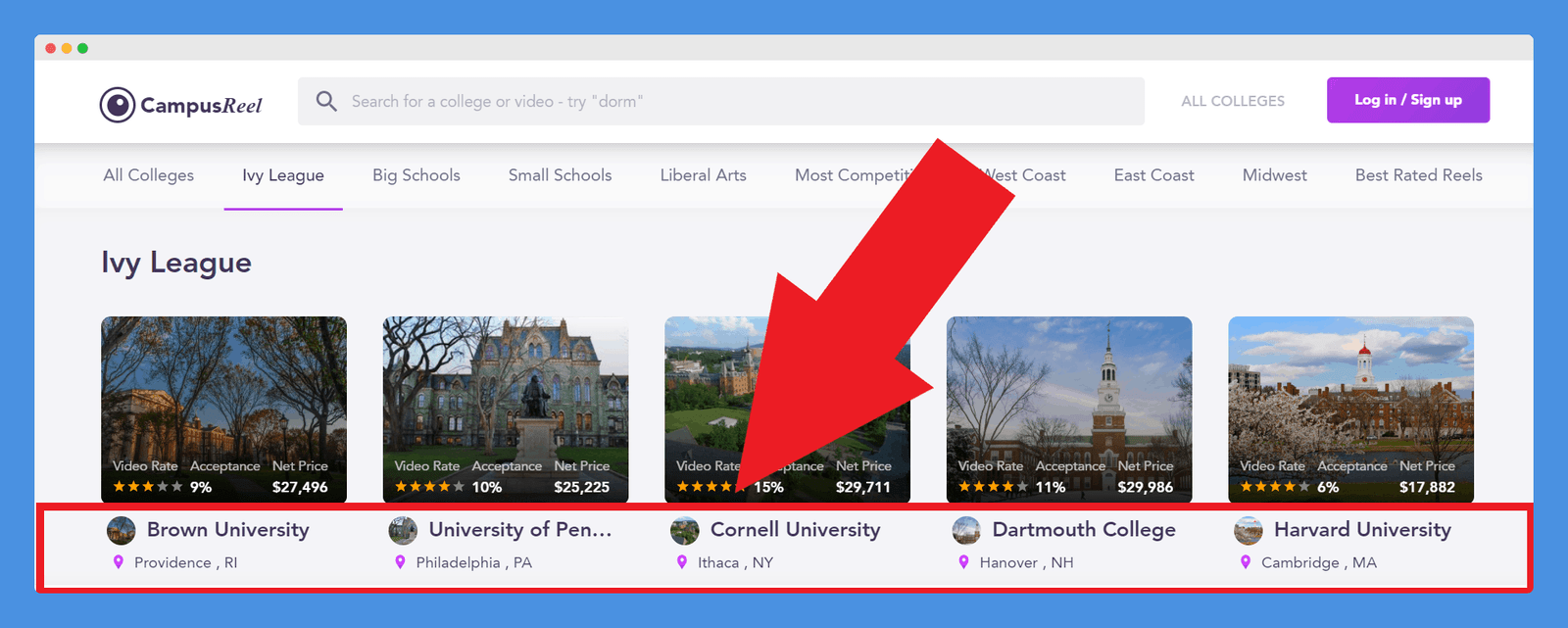
School pages:
Previously all of the videos on a page were mixed together.
But fortunately, CampusReel had tagged each type of video on the back-end.
So we sorted the videos by type.
And added a table of contents to the top.
Based on how prospective students search for information.
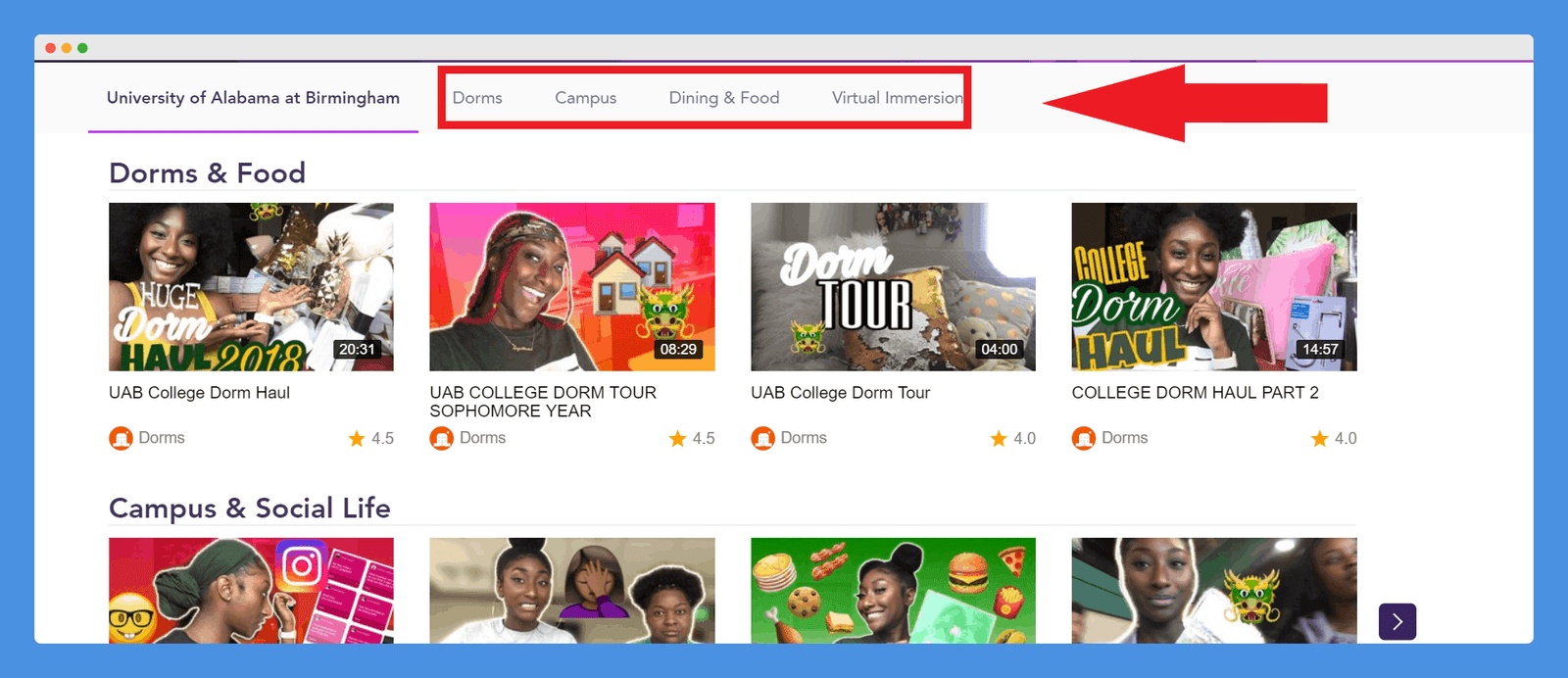
There were other opportunities that we would have liked to cover.
GPA, SAT scores, etc.
But CampusReel’s content was primarily focused on dorms, campus social life and dining halls.
So we made due with what we had.
Metadata
CampusReel has over 300+ university profile pages, and thousands of individual video pages.
The only way this was going to work was to generate the metadata for each page programmatically.
So we created a structure for each page type.
[School Name] campus reviews and video tours. Get a video tour of [School Name] life. You would never guess what [School Name]…..

We implemented a clickbait cliffhanger at the end of each university’s meta description.
Our goal here was to create something searchers would scroll down past higher search results and click through to, even if CampusReel wasn’t ranked #1.
Content
There are very, very few websites that rank well in Google without much-written content.
But all of CampusReel’s UGC was video content.
And we didn’t have the budget to create written content for 14,000+ pages.
Plus managing the manual creation and placement of that much content would have been a long, logistical slog.
So we got creative.
We instructed CampusReel to run all 14,000 videos through an API based transcriptions service that takes audio/video and provides written transcriptions of the content, then pushed the transcriptions all at once to 14,000 pages.
And just like that, we were able to align the site with what we know Google likes.
In a massively cost-effective way.
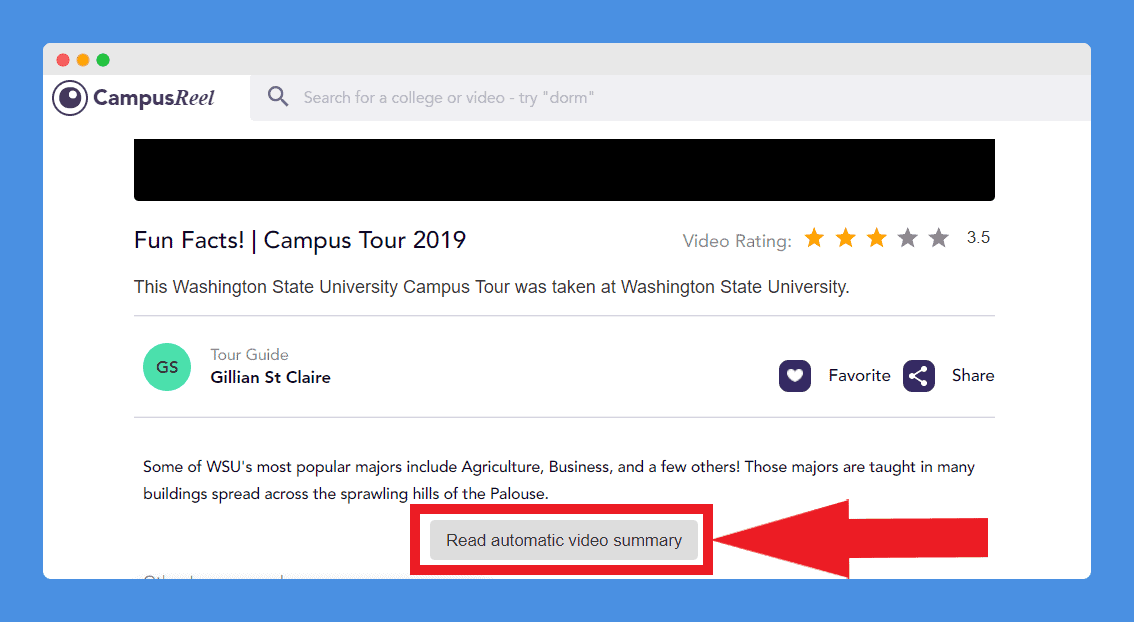
Notice we hide text behind a button to keep the page UI clean.
This is a valid tactic, and works, as long as the text loads with the page.
If the text does not load with the page, you reduce the effectiveness of hiding the text behind the button.
Gateway pages
The success of the automated page build out proved organic search was a viable acquisition channel, and CampusReel began expanding the scope of their ambitions.
The next keyword targets they executed on were:
- Calculators for college prospects
- Transferring to universities in their database

Once users land on the page, they are funneled to video reviews of that college.

And the page does a great job at structuring their content.

Internal linking.

And increasing user engagement metrics via embedded calculators.
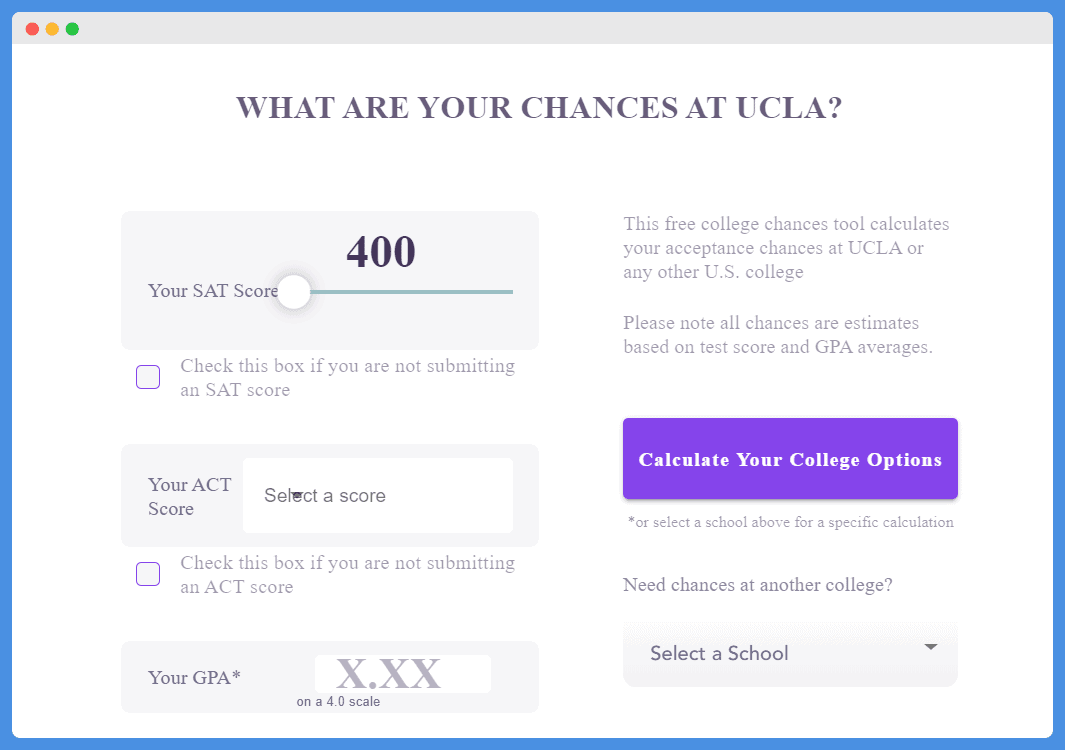
Conclusion
This was quite a fun, and interesting project to work on.
This was our first project trying to rank a site with very little written content, and we’re very proud of what we were able to achieve on a shoestring budget.
To continue the momentum in 2020 we’d like to see CampusReel adopt some of the tactics of their competitors and scrape information from the Department of Education.
🥇 Your Turn
Fully Managed SEO

Fully managed SEO for category leaders and future category leaders with huge goals and the budget to execute. We’ll do the heavy lifting, you sit back and take the credit.
👉 Learn what it’s like working with our consulting team.
Content Ops Consulting
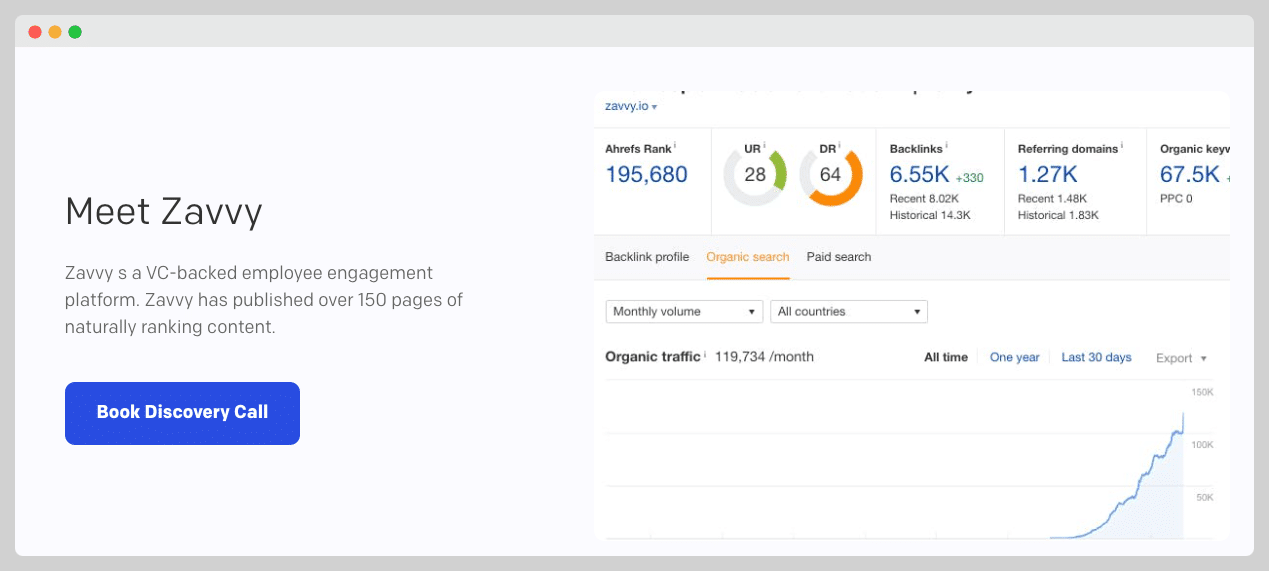
For startups that would prefer to develop institutional knowledge and scale up in-house,
👉 Join the 100k Organics/Month Club.
Free Resources
👉 Read all of our free playbooks
👉 Join 13,197 marketers getting our best content in their inbox 1x/week
👉 Hang with 10,548 marketers in the #1 Content Ops Community
👉 Subscribe to our YouTube channel for hour long deep dives.
Software
👉 Hire the top 1% of writers, editors, SEOs, VAs, designers and more.
👉 Build a topical map on EZ mode.





